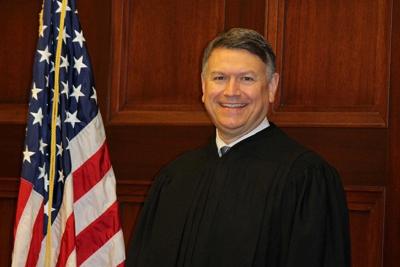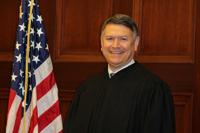
U.S. District Judge Judge James Cain Jr. of the Western District of Louisiana
A Louisiana federal court has enjoined an insurance company from requiring a Texas-based casino company’s COVID-19-era business-interruption case be decided through arbitration proceedings in London.
Judge James Cain Jr. of the Western District of Louisiana issued an order on Sept. 15 that extended a preliminary injunction against Chubb Bermuda Insurance through the end of September. The insurer had sought to move the legal dispute it has with Landry’s LLC, which operates the Golden Nugget Hotel & Casinos in Lake Charles, to arbitration proceedings in the High Court of Justice of England and Wales.
The legal dispute unfolded after Chubb Bermuda denied Landry’s coverage of business losses stemming from civil shutdown orders issued to protect public health during the COVID-19 pandemic, according to the plaintiffs’ motion supporting the restraining order. Landry’s argued that a Louisiana law makes arbitration clauses in insurance policies inoperative.
“Chubb Bermuda argues that the Convention (on the Recognition and Enforcement of Foreign Arbitral Awards) preempts this statute and requires arbitration …” the plaintiff’s motion states. “However, the convention's applicability turns on whether the arbitration agreement is ‘null and void, inoperative or incapable of being performed.’"
Landry’s stated that proceedings in the 14th Judicial District Court in Calcasieu Parish involving the plaintiffs and other insurers with similar policy language led to the adjudication of issues central to the current dispute in federal court. A trial in December of last year focused only on damages and bad faith penalties because Judge Clayton Davis concluded that the policy language did provide coverage for the business-interruption losses in the Calcasieu Parish case.
In addition, Chubb Bermuda had been on notice about this claim since 2020, Landry’s said in its motion, but the insurer failed to raise the arbitration clause until after the case was decided. If the federal court were to compel arbitration, it would lead to “duplicative proceedings, potential inconsistent rulings and undue prejudice to plaintiffs,” Landry’s argued.
The plaintiffs also contend that they have already spent nearly $180,000 in legal fees in English courts to defend against Chubb Bermuda’s actions and that enforcing the arbitration clause would cause them to suffer irreparable financial harm.
Mark Friedlander, spokesman for the Insurance Information Institute (Triple-I), noted that Louisiana law prohibits arbitration clauses in insurance contracts and that the law was upheld by the state Supreme Court in 2024.
But he told the Louisiana Record in an email that most state and federal courts have sided with property/casualty insurers in business-interruption cases due to clear-cut policy language.
“Neither local government shutdowns nor the virus constituted the physical damage necessary to trigger a business-interruption claim,” Friedlander said. “Business-interruption (BI) policies generally require the losses to be caused by physical damage to the property. The threat of a virus like COVID is generally not considered physical damage to the property.”
Typically, such policies have exclusions affirming that the insurer “will not pay for loss or damage caused by or resulting from any virus, bacterium or other microorganism that induces or is capable of inducing physical distress, illness or disease,” he said.
Though judges tossed out most U.S. BI cases with prejudice, lower courts did adjudicate a few cases in favor of the policyholder, according to Friedlander, though insurers prevailed on appeal.





